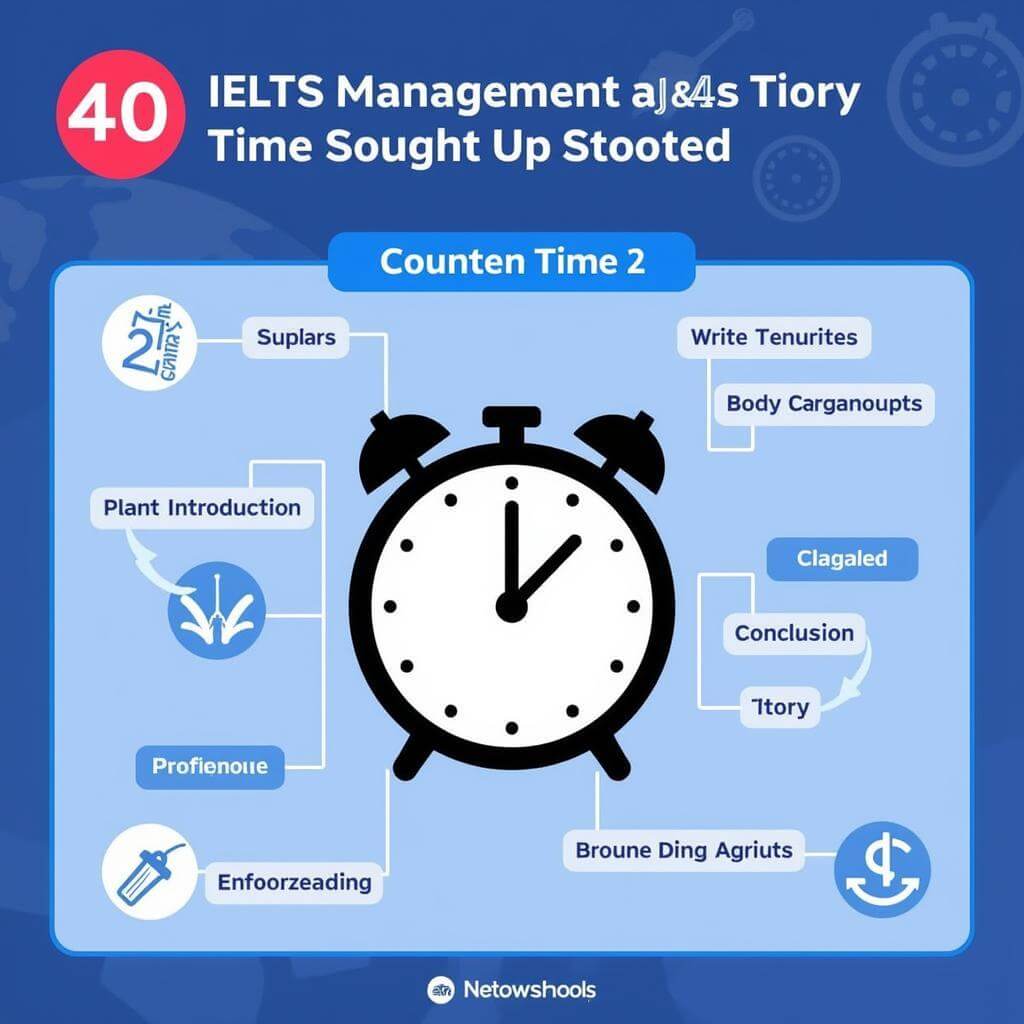Time management is one of the most crucial skills for IELTS test-takers, especially when it comes to the Writing section. In this article, we’ll explore effective strategies on how to manage IELTS Writing Task 2 under time constraints, helping you maximize your performance and achieve your desired score.
Understanding the Challenge
IELTS Writing Task 2 requires candidates to write a minimum of 250 words in just 40 minutes. This task can be particularly daunting for many test-takers, as it involves not only writing skills but also critical thinking and time management.

Pre-exam Preparation
Before we dive into specific time management techniques, it’s essential to emphasize the importance of thorough preparation before the exam day.
- Practice timed essays regularly
- Familiarize yourself with common IELTS Writing Task 2 topics
- Develop a bank of useful vocabulary and phrases
- Master the art of quick outlining
“The key to success in IELTS Writing Task 2 is not just about writing faster, but writing smarter,” says Dr. Emma Thompson, a veteran IELTS instructor with over 15 years of experience.
Time Management Strategies
1. Allocate Your Time Wisely (5 minutes)
Start by dividing your 40 minutes effectively:
- Planning and outlining: 5 minutes
- Writing the essay: 30 minutes
- Proofreading: 5 minutes
2. Plan and Outline Efficiently (5 minutes)
Use the first 5 minutes to:
- Analyze the question carefully
- Brainstorm main ideas
- Create a basic outline
Pro Tip: Practice strategies for identifying key points to quickly understand what the question is asking and formulate your response.
3. Write a Strong Introduction (5 minutes)
Your introduction should:
- Paraphrase the question
- State your position clearly
- Outline the main points you’ll discuss
4. Develop Body Paragraphs (20 minutes)
Allocate about 10 minutes for each body paragraph:
- Start with a clear topic sentence
- Provide supporting details and examples
- Use transition words for coherence
5. Craft a Concise Conclusion (5 minutes)
In your conclusion:
- Summarize your main points
- Restate your position
- Avoid introducing new ideas
6. Proofread Strategically (5 minutes)
Use the last 5 minutes to:
- Check for grammar and spelling errors
- Ensure coherence and cohesion
- Verify that you’ve answered all parts of the question
Advanced Time-Saving Techniques
1. Use Templates Judiciously
While it’s crucial to avoid memorized essays, having a mental template for different essay types can save precious time.
2. Develop Shorthand for Planning
Create a personal system of abbreviations and symbols for quick note-taking during the planning stage.
3. Practice Speed Writing
Regular timed writing exercises can help improve your writing speed without sacrificing quality. Consider how to practice grammar with timed essays to enhance both speed and accuracy.
4. Master Skimming and Scanning
These reading techniques can be adapted for quick proofreading. Learn more about improving retention of details in reading to boost your overall efficiency.
Dealing with Complex Topics
Sometimes, you may encounter challenging or unfamiliar topics in IELTS Writing Task 2. Here’s how to handle them under time pressure:
- Stay calm and analyze the question carefully
- Break down complex ideas into simpler components
- Use personal experiences or general knowledge if specific examples are lacking
- Focus on structure and coherence if content feels limited
For more detailed advice, explore our guide on strategies for complex task 2 topics.
Common Time Management Pitfalls to Avoid
- Spending too long on planning
- Writing unnecessarily long introductions
- Getting stuck on a particular point or example
- Neglecting to leave time for proofreading
- Panicking when faced with an unfamiliar topic
“Remember, it’s not about writing the perfect essay, but about demonstrating your language skills effectively within the given time,” advises Sarah Jenkins, IELTS examiner and curriculum developer.
Conclusion
Mastering how to manage IELTS Writing Task 2 under time constraints is a skill that can significantly improve your overall IELTS score. By following these strategies and practicing regularly, you’ll be well-equipped to tackle the writing section with confidence and efficiency. Remember, the key lies in smart preparation, effective time allocation, and staying calm under pressure.
FAQs
-
How many words should I aim for in IELTS Writing Task 2?
Aim for at least 250 words, but focus more on quality and addressing all parts of the question rather than word count alone. -
Is it okay to use personal examples in IELTS Writing Task 2?
Yes, personal examples can be effective if they’re relevant and help support your argument. -
What if I can’t finish my essay within 40 minutes?
It’s crucial to practice time management beforehand. If you’re running out of time, quickly wrap up your conclusion and leave a minute for basic proofreading. -
Should I use a pencil or pen for IELTS Writing Task 2?
Use a pen, as required by IELTS regulations. Practice writing neatly with a pen before the exam. -
How can I improve my writing speed for IELTS Task 2?
Regular timed practice, developing a personal shorthand for planning, and familiarizing yourself with common topics can all help improve your writing speed.